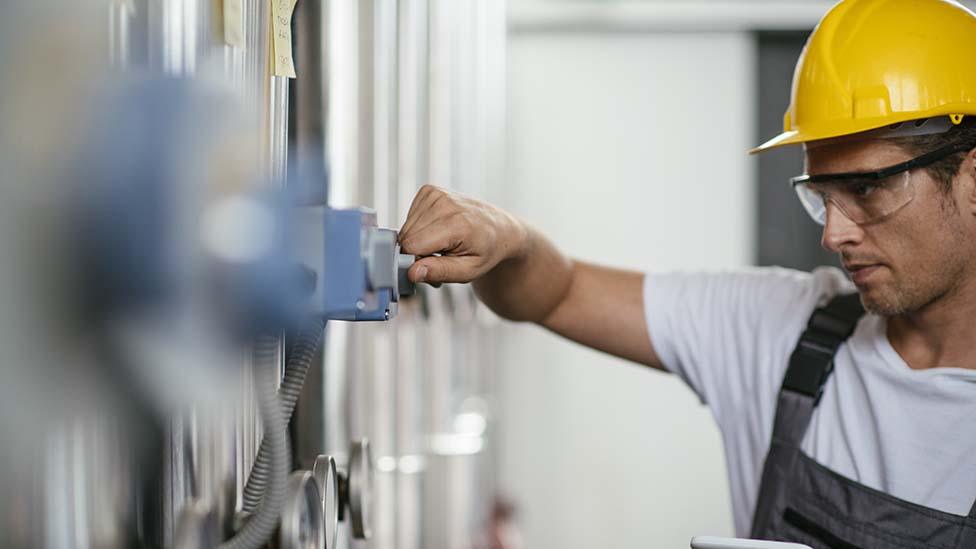Energy price cap not working, says power boss
- Published
- comments

The boss of Spanish energy giant Iberdrola has told the BBC the UK's energy price cap is not working and the country is now paying the price.
Ignacio Galan, the chief executive of Iberdrola, which owns Scottish Power, was speaking on the sidelines of a government investment summit.
"The price cap decision was made in a very particular situation, to protect the consumer," he told the BBC.
"But when the situation changes, it doesn't work," said Mr Galan.
"We are paying the consequences for it now. When you intervene in the market, you can resolve a temporary issue, but you cannot change things in the future.
"The price cap was made on a temporary basis, and I don't know why it has been maintained."
Mr Galan was attending the government's Global Investment Summit in London, which is aiming to attract more foreign investment in the UK, particularly in green technologies.
The energy price cap is designed to protect domestic consumers by limiting how much energy providers can charge them per unit.
But with global gas prices soaring, a number of firms have gone bust because the policy is requiring them to charge less for gas than it costs them to buy it.
Market rules
Asked if the price cap was a short-term political decision that has caused long-term damage to the market, Mr Galan replied: "Yes, exactly."
'You have to be very careful. The market has its own rules and if you change something in one place, you never know what is going to happen elsewhere. The world is global and people are affected in different ways."
Mr Galan said it was not up to UK regulator Ofgem to look at companies' profit margins, adding: "If there is enough competition, the market will fix the problem."
He said he thought the current high gas prices were relatively temporary and that any decisions made to deal with the energy crisis should be made for the long term.
"I've been in the industry a long time and from time to time, we face this sort of crisis. The first thing is not to become nervous and to take decisions for a temporary situation," he added.
"There is a difficult situation right now, but it will probably disappear in a few months. The reason it's happening is because of a shortage of gas supply, but that's not going to last forever. So we have to be very consistent in our approach."
Mr Galan called on the UK to be "much more dynamic" in moving to a low-carbon future, including speeding up the planning process for approving new power plants.
"Let's have a long-term view, a long-term vision, which I think the UK has, to accelerate the construction of new green power plants and distribution networks to be less dependent on fossil fuels and more dependent on the natural resources the country has."
Mr Galan's comments came as Iberdrola confirmed plans to invest £6bn in offshore wind farms off the coast of Suffolk, which could create up to 7,000 jobs if the sites receive planning permission.
Mr Galan said the UK was an attractive place to invest because of "stability, predictability, rule of law and a reasonable return on the investment".
Related topics
- Published18 October 2021

- Published8 October 2021

- Published7 October 2021

